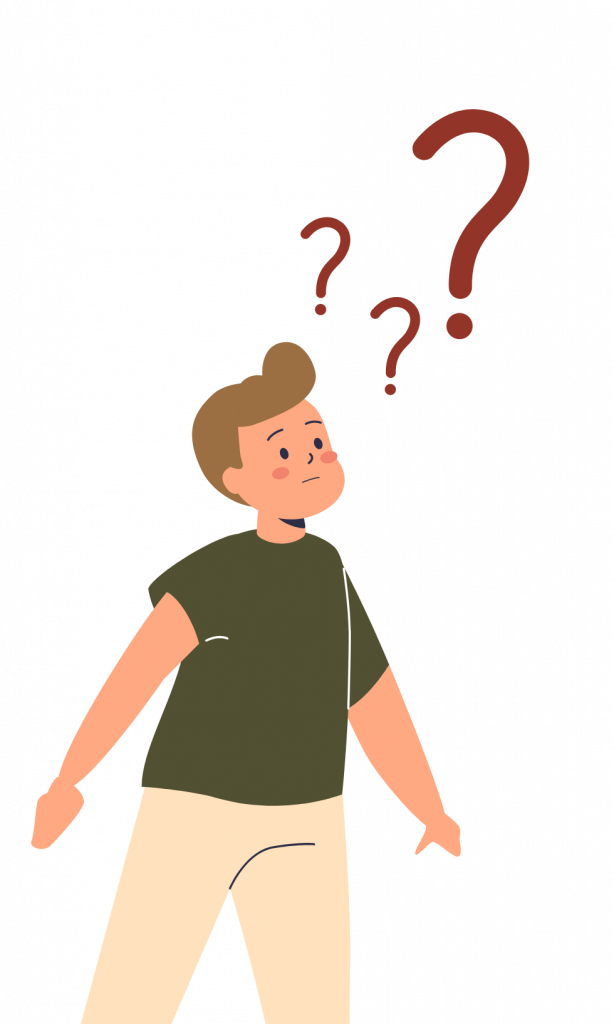

Eating disorders
What Are They?
Eating disorders are not the same for everyone. There are many kinds of eating disorders, too. But what are eating disorders, anyway?
Eating disorders are when people do not eat a healthy amount of food, they are preoccupied with their weight/body image, engage in certain behaviours excessively (weighing oneself, exercising, eating, fasting, etc), and/or they have uncomfortable emotions regarding food and eating.
People with eating disorders might also have what is called body dysmorphia. Body dysmorphia is when the person has a distorted view of what their body looks like. For example, someone with body dysmorphia might view themselves as a lot heavier than they are. This can lengthen their eating disorder. A person can have an eating disorder at any weight, shape, or size.
Myths / Facts Section
FACT – Being “skinny” does not mean a person is necessarily healthy.
Society places value on being slender. The current body standards are measured by often unrealistic body standards, but these beauty standards do not necessarily reflect health and wellness. Because of society’s view of being skinny, people think slender or skinny means healthy. Weight does not always indicate health. People can be slender and have many illnesses and diseases, as well.
Society’s view of weight shifts and changes. Did you know that there was a time in history when having extra curves was the desirable look? Try not to get caught up in what society says about these expectations and live your life to be happy and healthy.
FACT – Weight is influenced by many different factors.
A person can be overweight because of various things. There is often judgement against people who have extra weight because society values thinness and associates it with ambition, health, and wellness. People assume those who have extra weight are lazy and do not take care of themselves. Weight is influenced by many different things, such as genetics, medication, health concerns/issues, activity level, and diet. Being overweight does not mean the person eats too much or is unhealthy.
FACT – Fad diets can be extremely harmful and are not rooted in proper nutrition.
Fads diets seem like an enticing way to lose weight quickly. They promise a shortchange in diet with amazing results. They often cut out a specific group of food which can result in not getting the necessary nutrients. This is not healthy. In addition to not being a healthy option to lose weight, fad diets do not help a person develop better eating habits. Once a person has lost weight and quits the fad diet, they will often gain it back.
FACT – Counting calories is misguided and not all calories are the same.
Weight loss has been guided by counting calories for years. It seems like a logical way to lose or maintain weight, but counting calories is outdated. While it may seem like a good way to manage weight, it neglects the fact that calories are not the same. Consider 100 calories of carrots and fresh hummus versus 100 calories of deep-fried chicken wings. They will not contain the same amount/types of nutrients, fats, and minerals. The calories will be derived from different types of energies. More successful ways to manage health include food quality (whole foods, lean meat, vegetables, and fruits), exercise, sleeping well, managing stress levels, and consulting a professional/doctor (for help losing weight and consultation about medications/conditions which could cause weight gain).
FACT – Eating disorders are not something a person outgrows. They need professional help and intervention.
Eating disorders are very complex. If they are left untreated, it can be dangerous. If an eating disorder is treated early, there is a greater chance the person will recover. It can be scary to talk about or seek help for an eating disorder, but it is important. Not addressing it can have dangerous consequences. Hoping a person will grow out of an eating disorder or not talking about it perpetuates the shame surrounding it.
FACT – Not everyone has had or has an eating disorder.
Eating disorders impact approximately 1 million Canadians.
FACT – Eating disorders are very harmful and can result in death.
Eating disorders have harmful effects. Disordered eating impacts many body systems. When someone is not eating enough calories, their body starts to break itself down for fuel. This breakdown weakens the system and makes the person more vulnerable to other health issues. If someone is purging (example: throwing up after eating), this reduces the nutrients, fluids, and electrolytes the person is absorbing. Purging also comes with damage to the body, including eroded teeth/esophagus, stomach pain/rupture, constipation, intestinal obstructions, and more. If someone has been binge eating, this can result in added stress to the body system.
Eating disorders are very damaging to the body. It is not a healthy way to lose weight. It can result in death as the damage to the body can be very severe.
FACT – Children can be preoccupied with their weight and develop eating disorders, too.
Children are aware of body image and weight. Research has found that children as young as 3 can have issues with body image and how they see themselves. Adults play an important role in promoting positive self-esteem and body image. They can help develop a healthy body image. It is important to develop this foundation of acceptance to help combat the negative messages perpetuated by the media.
FACT – Eating disorders are not gendered. They impact all genders.
Eating disorders can impact anyone, regardless of age, employment status, gender, sexual orientation, ethnicity, relationship status, or background. Statistically, females are impacted 10 times more frequently than males. This does not take away the fact there are males who have an eating disorder. Some studies suggest 10-15% of individuals with anorexia or bulimia are male. People who identify as 2SLGBTQIA+ are at a higher risk of developing an eating disorder.


What could cause someone to have an eating disorder?
What Does It Look Like?
There are many different signs of eating disorders.
Some examples include:
- Fixating on weight or body image
- Body dysmorphia (feeling like they are overweight when they are not)
- Ignoring the seriousness of their weight
- Low self-esteem or their self-esteem is dependent on their weight
- Preoccupied with food, dieting, and body image
- Limiting how much they eat
- Problems with or withdrawing from relationships
- Digestive problems
- Passing out or tiredness
- Avoiding mealtimes
- Exercising excessively
- Repeated binging (eating large amounts of food in one sitting)
- Feeling loss of control while eating
- Vomiting or exercising after binging/going to the bathroom right after eating
- Using weight loss products
- Very concerned with the ingredients of food and the nutritional facts
- Avoiding foods that are not healthy or “pure”
- Concerned with what other people are eating
- Thinking about the food at upcoming events
- Upset when “healthy” or “safe” foods are not available
- Shame or guilt about eating/behaviour
- Eating when not hungry
- Eating alone to hide the shame or embarrassment
- Frequently dieting with little results
Remember, people with eating disorders might not gain or lose weight. They could look like they have a “healthy” weight.


What To Do if You are Struggling With an Eating Disorder?
Most people struggle with self-worth and body image at some point in their lives. If you feel like your feelings about your body/weight/size are unhealthy and you are having a hard time dealing with it, it is important to reach out for help.
- Remember, it is okay not to be okay. Everyone has hard times. It takes a very strong person to admit they are not doing well. It is about seeking help when you are not doing well.
- Tell someone you trust. Find someone you trust who will help you connect with help. You deserve to feel better and get help! Talk to someone you trust about your struggles. There is no shame in asking for help. Asking for help is a great sign of strength. You deserve to feel good about yourself. If reaching out for professional help makes you anxious (don’t worry! that is normal), ask a loved one to support you in connecting with help. Help could be a counselor, doctor, elder, social worker, or spiritual leader.
- Take care of yourself. Make healthy choices for your mental health and practice positive coping skills. Find people who support you.
- Remember, you’ve got this! You deserve to feel happy and healthy.
In addition to seeking professional help and reaching out, there are many things you can do to support your mental health. Check out the wellness tips below or the wellness sessions.
How to Help Someone Who Tells You They are Struggling?
When someone tells you they are struggling, it can be scary and hard to know what to say. That is a terrifying thing. It is easy to become caught up in emotions. Many people fear saying the wrong thing. We often want to try to fix our friend’s problems or counsel them, but that is not your job. Your main job is to tell someone and connect your friend to help.
The following are some guidelines as to what to do when your friend tells you they are struggling and how to handle those difficult conversations. There is a good chance your friend will talk to you before they talk to their parents/guardians. This is not to counsel the person. This is to get the person connected with a helping professional. Please remember the conversation will not be linear like on the page. These are guidelines of some things to consider.
The person is telling you something scary and personal to them. This is terrifying for both of you. Take that moment to gather yourself and take a deep breath.
Give the person the time and consideration you would like if you were struggling. Be the friend you would like if you were the one needing help by giving your friend your full attention. They deserve it. It will also help you know what your friend is trying to tell you. While you are listening, be understanding and compassionate. Give your friend the space to talk.
- Do not judge your friend. What they are coping with might not seem like a big deal to you, but it is to them. Therefore, it is valid.
- Sometimes when someone tells us how they are struggling, we react with anger or judgement because we are scared. We might say something like “Oh my goodness! How could you say/think something so stupid?”; “Don’t be dumb”; or “How could you say something like that?”. As you can imagine, this is not helpful for your friend. What your friend hears is “you are stupid/dumb.”
- Do not interrupt your friend. Being interrupted is very frustrating. It can make the person feel like they are not being heard.
- Put your phone down! Have you ever talked to someone who is on their phone, and they don’t hear a word you say? It can be very frustrating. Treat your friend with the respect they deserve.
- Be the best friend you can be and the person you would like if you were in that situation.
- Do not judge your friend. What they are coping with might not seem like a big deal to you, but it is to them. Therefore, it is valid.
- Your friend needs to get help. This is not something you can deal with without professional/adult help. Sometimes, it can feel like adults do not listen or take problems seriously, but this is something you need to talk to an adult about. Help your friend think of someone they trust.
Try saying something like, “Have you thought about who else you could talk to about this?”
“Have you told anyone else?”
“Who do you feel comfortable talking to about this?”
“Okay let’s find you some help. Who do you feel comfortable telling?”
If they feel like they have no one they can trust, talk to someone you trust. Thinking of who to talk to can be really challenging when you are struggling because it can feel so lonely. If your friend is having a hard time thinking of someone to talk to, help connect them with resources, like a school counselor or family liaison worker. You can also offer your friend some helplines they can call when they are struggling. If you are comfortable, you can also offer to go with your friend to talk to the adult. If the first person you tell does not listen, tell someone else.
If your friend asks you to keep it a secret, you cannot keep it a secret. There are things we keep secret for friends, like their crush or that embarrassing story they swore you to secrecy about, but there are three instances where you must break your friend’s confidence. Eating disorders have many negative health consequences.
- They are going to harm themself.
- They are going to harm someone else.
- They are being harmed by someone.
Talking to a friend who is struggling is challenging. Talk to someone about it to help cope with the stress of the situation. This does not mean gossip, but using your own support system. Practice self-care. Do something you enjoy. For self-care ideas, visit the self-care section here.

Sometimes, people will not want to talk to you. That is okay. It is their choice. Simply let them know you are there to talk if they need someone and give them resources, like hotlines they can call whenever they want to talk to someone.
Follow-Up Support for Someone With an Eating Disorder
- Be patient and supportive
- Listen without judging your friend
- Practice healthy boundaries with your friend
- Have fun with your friend
- Be mindful of images you see on social media
- Adopt healthy habits
- Be aware of how you talk about body image
- Practice self-care
Things to Avoid
- Making fun of people’s weight
- Judging your friend
- Threatening your friend
- Counseling your friend
- Encouraging your friend to lose weight
Tips for Wellness

- Seek help when you feel triggered
- Follow body positive/neutral social media accounts
- Be aware of the type of content (social media) you are consuming
- Foster friendships/relationships which are healthy
- Do things that support and encourage positive self-worth
- Have fun
- Practice healthy boundaries
- Utilize positive affirmations
For more information or ideas for wellness, check out the wellness sessions.
Further Resources
Adult Obesity Causes & Consequences | Overweight & Obesity | CDC\
Anorexia nervosa – Symptoms and causes – Mayo Clinic
Binge-eating disorder – Symptoms and causes – Mayo Clinic
Body image in childhood | Mental Health Foundation
Body Image Issues (Children and Teens) | familydoctor.org
Bulimia nervosa – Symptoms and causes – Mayo Clinic
Bulimia nervosa – Symptoms and causes – Mayo Clinic
Causes of Eating Disorders (gruberpeplab.com)
Compulsive Overeating vs. Binge Eating Disorder (healthline.com)
Eating Disorder Statistics & Research | Learn | NEDA (nationaleatingdisorders.org)
Eating Disorders (for Parents) – Nemours Kidshealth
Eating Disorders in Canada – NIED
Eating Disorders in LGBTQ+ Populations | National Eating Disorders Association
Male Eating Disorders: A Snapshot of Statistics and Their Implications (eatingdisorderhope.com)
Orthorexia | National Eating Disorders Association
Orthorexia: When Healthy Eating Becomes a Disorder (healthline.com)
Section D – Eating disorders (statcan.gc.ca)
Stop counting calories – Harvard Health
The Facts – Eating Disorder Support Network of Alberta (edsna.ca)
Trending Topics
Relationships
Healthy Relationships Qualities of Healthy Relationships Respect is to treat others the way you want to be treated, be considerate, honour someone’s feelings and opinions.
Dimensions of Health
Dimensions of Health How do you feel when you wake up on your best day? You probably feel well-rested. You probably wake up to a
Body Awareness Grounding
Body Awareness Grounding Grounding helps to bring us to the present moment. Darth Vader breathing. Take a deep, slow breath through your nose. Breathe out
Online Relationships
Online Relationships Tips for Being Safe Online: Do not talk to people you don’t know online Remember what you post online is there forever (even
Suicide Awareness
Suicide Awareness What Is Suicide? Suicide is when someone ends their own life on purpose. It is not an accident. It is a permanent solution

